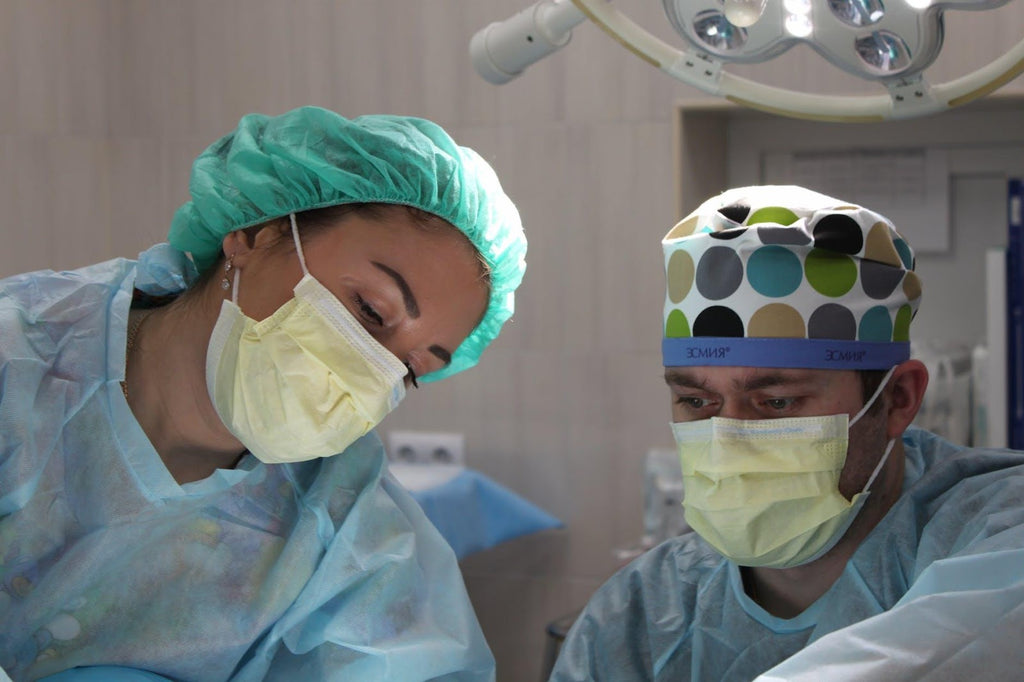Is it true that you have hemorrhoids but are concerned that the treatment process will be painful and that the recovery period will take forever? If yes, you are not alone.
Hemorrhoids affect over half of the population in the United States at some point in their lives.
While hemorrhoids are uncomfortable, the good news is that most cases do not necessitate surgical intervention and can be managed with alternative medications, dietary changes, or at-home cures.
According to the American Society of Colon and Rectal Surgeons (ASCRS), less than 10% of hemorrhoid patients require surgery; nonetheless, surgery may become necessary in some situations when external or prolapsed hemorrhoids become too irritating or infected.
Different Types of Hemorrhoids
Hemorrhoids are classified as either external or internal hemorrhoids. External hemorrhoids are caused by the anal canal, whereas internal hemorrhoids are caused by the rectum located right above the anal canal.
Although one form is not always worse than the other, both might cause serious consequences. The size and severity of hemorrhoid determine everything.
Internal hemorrhoids that are not treated can result in bleeding. External hemorrhoids can result in thrombosis (blood clotting), causing severe pain due to hemorrhoidal strangling.
When Do You Need Hemorrhoid Surgery
Hemorrhoids can be difficult to treat in some people, even with a healthy and balanced diet, as well as over-the-counter medications. While serious hemorrhoid symptoms are extremely rare, it is crucial to understand when to visit your doctor.
- If you are experiencing bleeding, a lump in the anus, or rectal pain, consult your doctor to make sure you do not have a more serious underlying cause for your symptoms.
- If fiber supplements, an increase in consumption of water, over-the-counter medications, or warm baths do not help, see a doctor immediately.
- If you've been attempting to treat hemorrhoids independently but are still experiencing hemorrhoid symptoms, seeing a doctor is a good idea.
Hemorrhoid Surgical Treatments
Surgery is the most effective treatment available for hemorrhoids causing painful symptoms. This is the last resort for most people if their symptoms don't improve with other forms of treatment, such as dietary modifications. For hemorrhoids to diminish or be eliminated, surgery must be performed. This is accomplished through the following methods:
- Removing entire hemorrhoid using surgical procedure.
- Lowering the amount of blood flowing to hemorrhoids.
Surgery might be beneficial in the case of symptoms causing substantial pain, as a doctor can remove hemorrhoid as soon as it is identified. The healing period following surgery, on the other hand, can last several weeks.
Here are various forms of hemorrhoid surgery.
Rubber Band Ligation
A typical treatment for internal hemorrhoids is rubber band ligation, often known as banding. Using this method, you can get rid of internal hemorrhoids bleeding or prolapsing.
Rubber band ligation is a procedure in which a short elastic band or rubber band is wrapped around the base of the hemorrhoid, cutting off the hemorrhoid's blood supply. This causes the hemorrhoid to contract and eventually shrink.
Most cases necessitate two to four operations performed approximately two months apart.
Laser Infrared Coagulation
In the past, when treating and preventing hemorrhoids, the most commonly used treatment was Hemorrhoidectomy. A painful and prolonged recovery period of several weeks followed this operation. The good news is that Hemorrhoidectomy is no longer necessary unless in the most severe cases.
Technological advancements have resulted in successful nonsurgical hemorrhoid therapies, and laser infrared coagulation is one of them. This treatment provides relief without any stitches.
Warm infrared light is used to treat hemorrhoids. This light causes the blood flow to hemorrhoid to halt, resulting in hemorrhoid shrinking and disappearing completely. Even though the therapy only takes minutes, a series of 3-4 sessions may be required month to month.
Sclerotherapy
Sclerotherapy is a procedure in which a solution is injected into a hemorrhoid, causing it to shrink. It is usually done in a doctor's office with the patient experiencing little pain or discomfort during the procedure.
In some cases, a salt solution is injected directly into a vein using a small needle. You may suffer some soreness and cramping for one to two minutes following the injection, especially when injected in larger veins.
However, the effects of the surgery are both permanent and temporary. These results can be permanent because treated veins will fade away, but because the new spider and varicose veins can grow over time, the results are also temporary.
Hemorrhoidectomy
Hemorrhoidectomy is often reserved for treating severe external or internal hemorrhoids that still occur even after other treatments, such as rubber band ligation.
Hemorrhoidectomies are performed under general anesthesia, and most patients can return home the same day. During the surgery, small incisions are created in the tissue around the hemorrhoid, after which the hemorrhoid is surgically removed from the body.
In addition to being the most invasive and often painful of all hemorrhoid treatment methods available, this procedure often provides a lasting solution for severe hemorrhoids.
Since the skin is extremely sensitive near the cuts, you may require surgical stitches. The area may be tender for a short period after the surgery.
Typically, recovery takes around two weeks, but it can take anywhere from three to six weeks to feel like you're back to normal.
Summary
To summarize, surgical treatment for hemorrhoids is the most effective option. All methods of hemorrhoid surgery include minimally invasive procedures that are useful in the treatment of hemorrhoids. They are viable when other nonsurgical treatments fail to provide satisfactory results. Remember that surgery for hemorrhoids is reserved for severe cases, such as when home remedies fail to relieve the symptoms, in cases of emergency (such as serious bleeding), or when the symptoms become so irritating or painful that they interfere with your daily activities.

